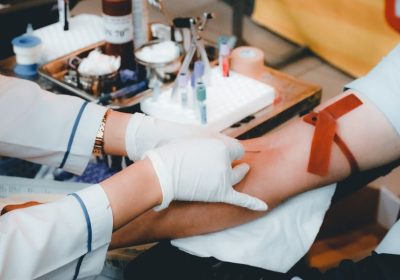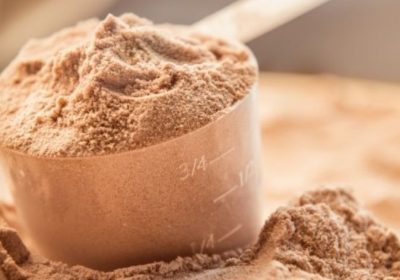
8 Reasons For Infestation Of Mouth Larva: Symptoms & Treatment
Oral myiasis, also called mouth larva, is a rare oral condition in which the mouths of positive dipteran flies are contaminated with parasitic larvae that consume the dead tissues of their host.
An uncommon but real infection of mouth maggots exists. It can appear anywhere in your mouth, in the upper and lower lip layers, and with gums. Alcoholism, poor dental hygiene, suppurating lesions, aging, severe halitosis, and other conditions are associated with the rare pathology.
Queries concerning mouth larvae and gum tissue larvae will be addressed in this article. Additionally, it will identify “how you get larva for your mouth” and the categories in which it is far more prevalent.
What Is a Larva and Myiasis?
What is mouth larva? Myiasis is a disease caused by the infection of human tissue by fly larvae (maggots), which typically affects people who live in tropical and subtropical regions.
America’s medications rarely include maggot infections. When visiting underdeveloped nations like South America, Africa, or others, people often bring medications with them.
Maggot infections are more common in travelers with open wounds or accidents, which makes medications ideal for temporary relief.
What Are Mouth Larvae and Oral Myiasis?
F.W. Hope originally came up with the term “myiasis” over the counter in 1840. “Myia” means fly, and “iasis” denotes disorder in Greek.
Dipterous larvae, which feed on both living and dead tissue on host bodies, are a type of oral contamination that results in mouth larva. Oral myiasis may result from factors such as poor oral hygiene, situations that lead to a persistent mouth, and the fact that the mouth is the least conducive habitat for his or her prevalence.
How can larvae enter your mouth?
Some of the unfavorable conditions that prevent larvae from harboring and multiplying are foul odors and food detritus that ferments as a result of poor oral hygiene.
An unpleasant mouth odor is a sign of poor oral hygiene, which attracts flies. Chronic mouth opening speeds up the deposition of eggs by mature flies, and tropical or subtropical environments are ideal for their reproduction.
Why Do Larvae Get in Your Mouth?
The counter is at fault for the majority of occurrences of maggot infestations:
- Overindulgence in alcohol
- Unsanitary living circumstances
- Awful dental care
- Mouth breathing when sleeping
Signs and Indications of Larvae in Gums
A lump will develop in the afflicted area where larvae proliferate when a person has gingival miyasis. The larvae stay under the skin of the product; however, they may occasionally feel like moving. Other possible symptoms include:
- Horrifying breath
- Acute edema
- Severe necrotic tissue discomfort
- Malaise with Fever
Usually, mouth larvae are removed surgically. Ivermectin, a semi-tic macrolide antibiotic, can be purchased to assist in the systematic treatment of multiple larvae that are currently available and in advanced stages of improvement. This will guarantee the complete removal of parasites.
Surgeons frequently remove larvae from useless tissues when Ivermectin treatment is ineffective. Debridement of the affected tissues in a proper manner accomplishes this.
A portion of this guide concerns itself with statistics regarding foul breath and whether or not living microbes contribute to bad mouth breath.
Do microbes in your mouth cause bad breath that doesn’t go away?
There’s nowhere better for germs to grow and feed than in a human mouth. That being said, may microbes give individuals persistent bad breath? “Awful breath can show up every time there are hundreds of sorts of awful breath-causing bacteria that live in your mouth,” states the Dental Association (ADA).
The ADA characterized human oral products as a “herbal hothouse that permits these microorganisms to develop.” But with the correct brushing and flossing, bad breath could be eliminated, promoting the growth of the organism.
In relation to bad breath, allow us to share with you three peculiar bad breath statistics that you may not be aware of.
Horrible Morning Breath Can Be Prevented
Many people are uncomfortable speaking shortly after waking up because of their terrible breath. There’s a difference between persistent foul breath and morning breath.
For instance, eating foods high in nutrients, such as raw onions, garlic, and so forth, might naturally and unavoidably result in bad breath. However, even after practicing good dental hygiene, if you still have bad breath for a day, you should consult a dentist to find the root of the problem.
Treatments for bad breath include using mouthwash consistently, brushing and flossing twice a day, going to the dentist every day, and flossing once in the afternoon.
Medications may encourage persistent bad breath
You cannot see it, but if you are taking medication and have bad breath, it is most likely a side effect of your medication. “Some medicines additionally may produce an unsightly taste or scent or may also cause dry mouth, which in turn leads to awful breath,” according to the American Dental Association.
In addition, a few medical conditions, such as diabetes, bronchitis, tonsillitis, sinus infections, gastrointestinal problems, etc., may also contribute to persistently bad breath.
The majority of workers are unaware that the term “halitosis” refers to bad breath that is the result of using Listerine. Listerine invented the period Halitosis. “Listerine coined the term ‘halitosis’ to explain terrible breath and income takeoff,” according to the website of the organization.
Conclusion
Oral myiasis, also known as mouth larva, is a rare disease that frequently affects rural residents. Take care and try not to leave your safe location before adequately covering your wound if you are traveling from the South, United States, Africa, or Caribbean islands.
The most straightforward methods to eliminate mouth larvae’s superiority are education and hygiene. When it comes to bad breath, you may spare yourself the trouble by using mouthwash and religiously flossing. We wholeheartedly concur that maintaining good oral hygiene is preventive care, even with products






